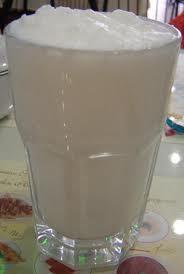
a glass of kefir
What is Kefir?
The Nobel Prize winner Dr. Ilya Mechnikov is one of the first scientists to recognize the benefits of eating fermented foods. One of these fermented foods is kefir. It is believed that daily consumption of kefir is an important contribution to better health and longevity.
Kefir is not like other dairy products. Its origins are in the Caucasus region centuries ago. Kefir is a Persian word that comes from kef (foam) and shir (milk). Thanks to its health benefits and unique microbiology, this fermented milk drink is considered a miracle. It is easy to digest and contains less lactose especially if it is left to ferment for a long time. Unlike yogurt, kefir contains about thirty strains of bacteria and yeasts. They give it an excellent storage by preventing the decay (Salmonella, E. Coli) bacteria that might otherwise colonize the milk to spoil it.
The Benefits of Kefir
Kefir grains can reach the size of an egg. They are rich in minerals and vitamins and produce their own antibiotics. Kefir slows the aging process and has many medicinal properties. It is used in healing heart diseases, lowering cholesterol and regulating blood pressure. This fermented milk drink is beneficial to the digestive system, the treatment of liver, kidney, spleen, pancreas, gallbladder, stomach and urinary tract. It has anti-tumor properties and helps in preventing the development of metastases. It is a source of protein and many essential amino acids. Kefir is anti-inflammatory and is an excellent immune system booster.
How Does Kefir Work?
The explanation is very simple. Most diseases start in the guts due to the worsened intestinal flora and increased colonization of the intestine with harmful microorganisms (bacteria, candida, etc.). Kefir is not a medicine, but it restores the intestinal flora colonizing it with good bacteria when taken regularly. Little by little the beneficial bacteria and other microorganisms outweigh the harmful flora and destroy it. The result: toxins and harmful microorganisms can no longer pass through the intestinal walls and infect other organs in the body.
To find out how to prepare your own kefir, don’t miss my next post with the recipe.

